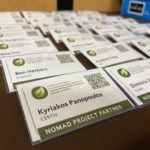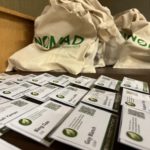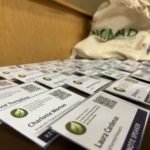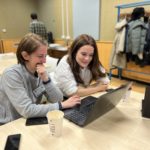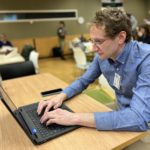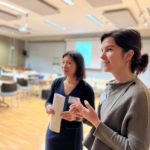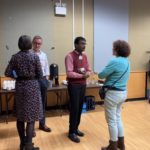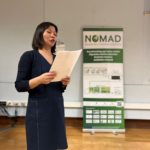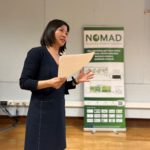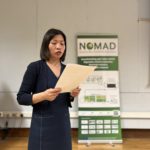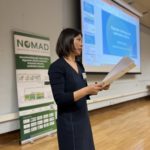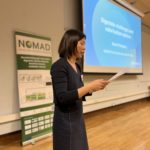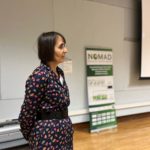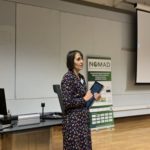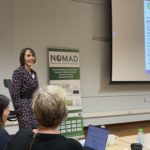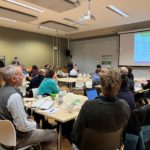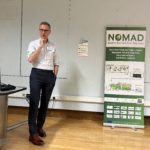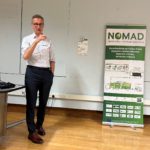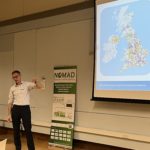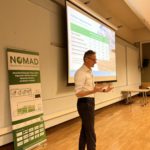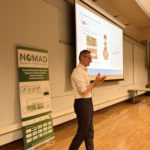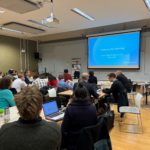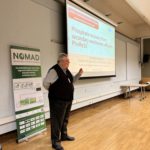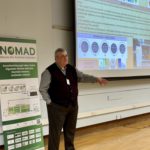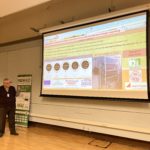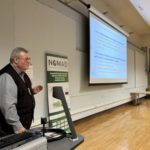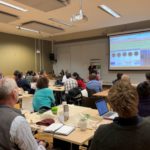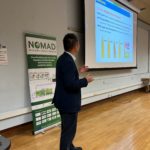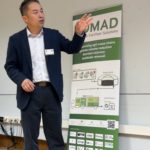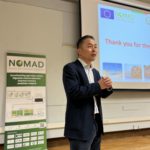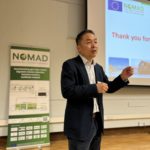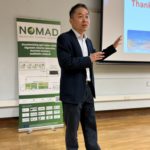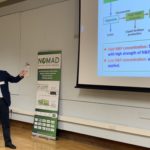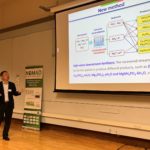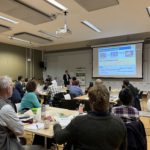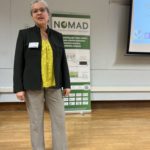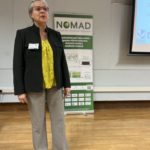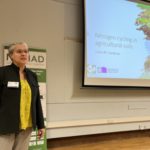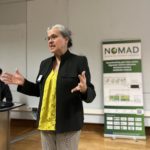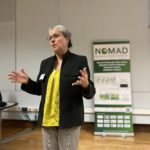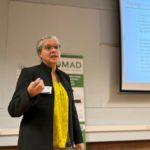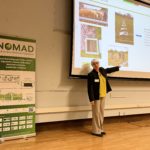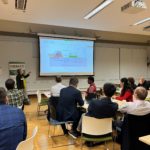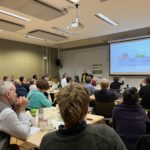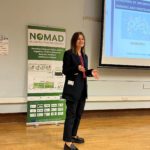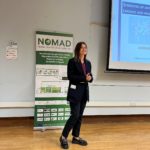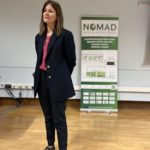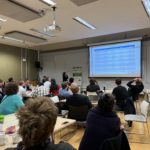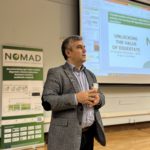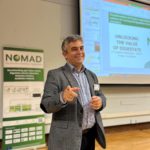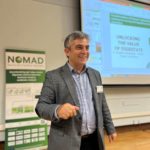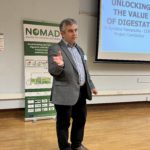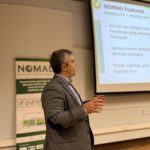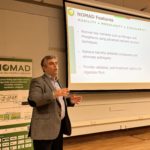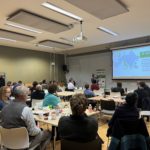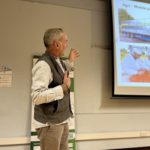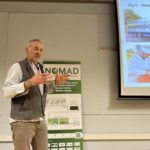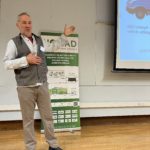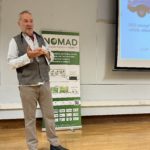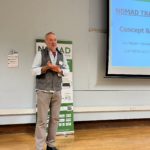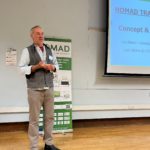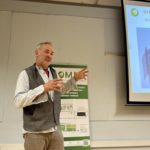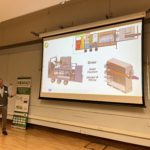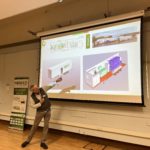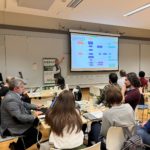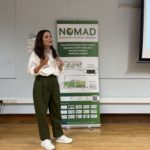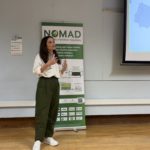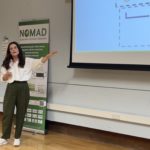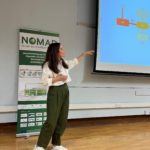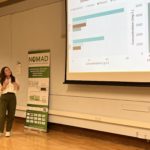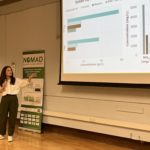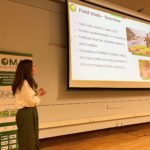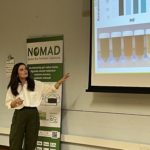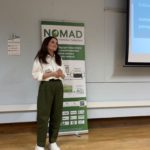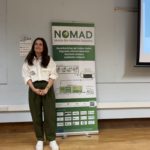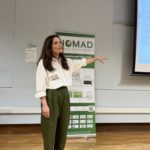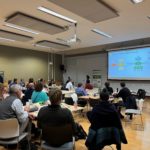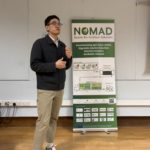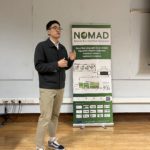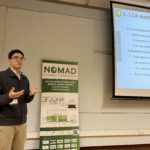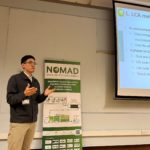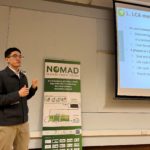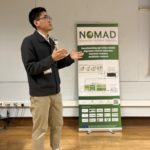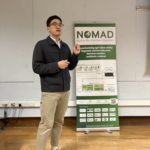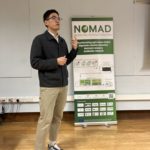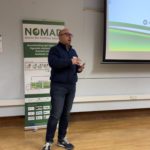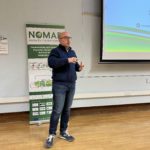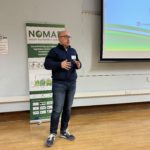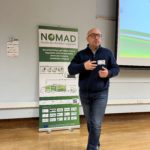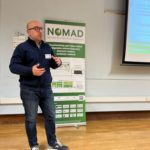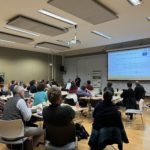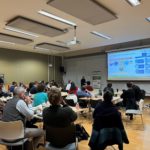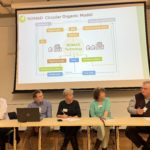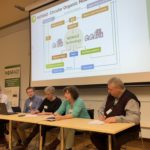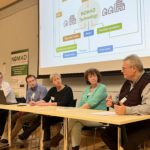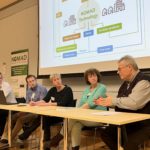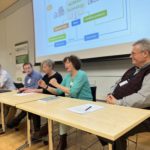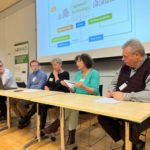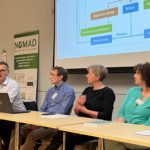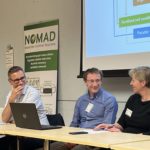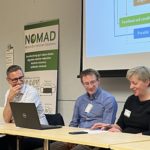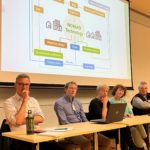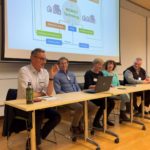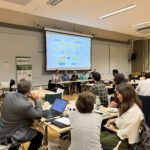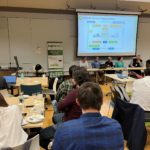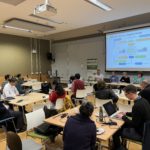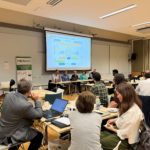"Transformation of Europe's agriculture: A mobile technology solution for turning AD digestate to fertilisers and soil amenders"
On April 27, 2023, we hosted our final conference at the prestigious University College London (UCL). Under the theme of “Transformation of Europe’s agriculture: A mobile technology solution for turning AD digestate to fertilizers and soil amenders,” the conference brought together professionals and experts from across the globe to explore innovative solutions for sustainable agricultural practices.
The event witnessed an impressive turnout of 43 attendees hailing from six different countries, reflecting the international significance of NOMAD’s mission. The program was packed with enlightening keynote speeches, engaging panel discussions, and insightful presentations on various aspects of anaerobic digestate (AD) and organic waste management.
The conference kicked off with a series of distinguished keynote speakers, each renowned in their respective fields. Charlotte Morton, Chief Executive of the Anaerobic Digestion and Bioresources Association of the UK (ADBA), set the tone by providing an overview of the global landscape of AD and digestate management. Dr. Anastasios Zouboulis, Professor of Chemical and Environmental Technology at Aristotle University of Thessaloniki, Greece, shared his expertise on nutrient management, shedding light on effective strategies for sustainable agricultural practices. Dr. Dimitra Lambropoulou, Associate Professor of Environmental Chemistry at Aristotle University of Thessaloniki, Greece, addressed the critical issue of antibiotics and their impact on agricultural ecosystems. Dr. Laura Cardenas from Rothamsted Research, UK, delivered a thought-provoking presentation on the role of soil fertilizers in enhancing agricultural productivity. David Tompkins, representing AquaEnviro, UK, shared his insights on the challenges associated with digestate and technology reviews, offering valuable perspectives on industry advancements.
The conference also featured international perspectives, with Dr. Zhilong Ye from the Chinese Academy of Sciences delivering a fascinating talk on “Synchronously recovering different nutrient ions from wastewater by using selective electrodialysis.” Dr. Ye’s presentation showcased the global significance of the AD industry and the collaborative efforts in finding innovative solutions.
Dr. Panagiotis Kougias, Head of Waste Management and Bioprocessing Laboratory at DIMITRA, Greece, enriched the conference with his extensive experience in EU-funded projects related to AD. Dr. Kougias shared valuable insights garnered from his involvement in similar initiatives, providing attendees with a comprehensive understanding of the field.
In addition to the enlightening keynote speeches, the afternoon session witnessed a captivating panel discussion featuring external and NOMAD experts. Angela Bywater, Chris Betteridge, David Tompkins, and Dr. Anastasios Zouboulis joined the panel, moderated by Mairi Black from UCL. The lively discussion delved into the challenges and opportunities surrounding AD digestate and organic waste management, generating thought-provoking insights and fostering collaboration among industry professionals.
Throughout the conference, NOMAD also highlighted the progress and achievements of its innovative mobile technology solution. Attendees gained exclusive insights into the design and build of our NOMAD trucks, learned about our results in the nutrient recovery and field growing trials, and were presented with comprehensive Life Cycle Assessment (LCA) results.
The NOMAD final conference left participants inspired, informed, and motivated to champion sustainable agricultural practices in their respective fields. The event was a testament to the power of collaboration and knowledge sharing, bringing together professionals from diverse backgrounds to collectively work towards a greener and more sustainable future for Europe’s agriculture.
As NOMAD concludes its journey, the impact of its innovative solutions and collaborative efforts will continue to shape the agricultural landscape, offering practical and scalable models for AD digestate management and organic waste.
